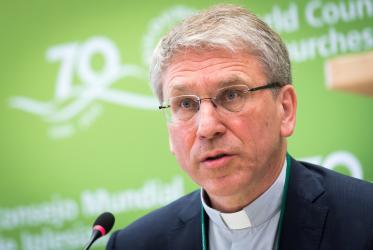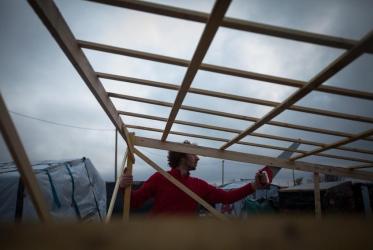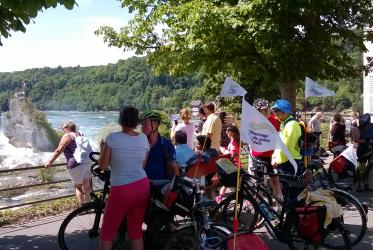Displaying 21 - 40 of 80
20 July 2018
Churches in France encourage ecological conversion
24 January 2018
A cycling pilgrimage of justice and peace
07 August 2017
G7 must address famine
22 May 2017
“Overcoming economic injustice” vision of WCC’s Athena Peralta
23 February 2017
New videos help congregations hasten HIV response
20 October 2016
New Executive Committee members elected in Trondheim
28 June 2016
Voices from HIV workshop reflect deep impact
07 April 2016
"I hit the ground running": Katalina Tahaafe-Williams
16 February 2016
WCC/UN conference calls for coordinated action on refugee crisis
20 January 2016
One refugee’s story: from Syria to France
07 January 2016
Tveit: Time to follow up on COP21 and to prepare for Davos
17 December 2015
Consultation considers right to food in context of climate change
15 December 2015












